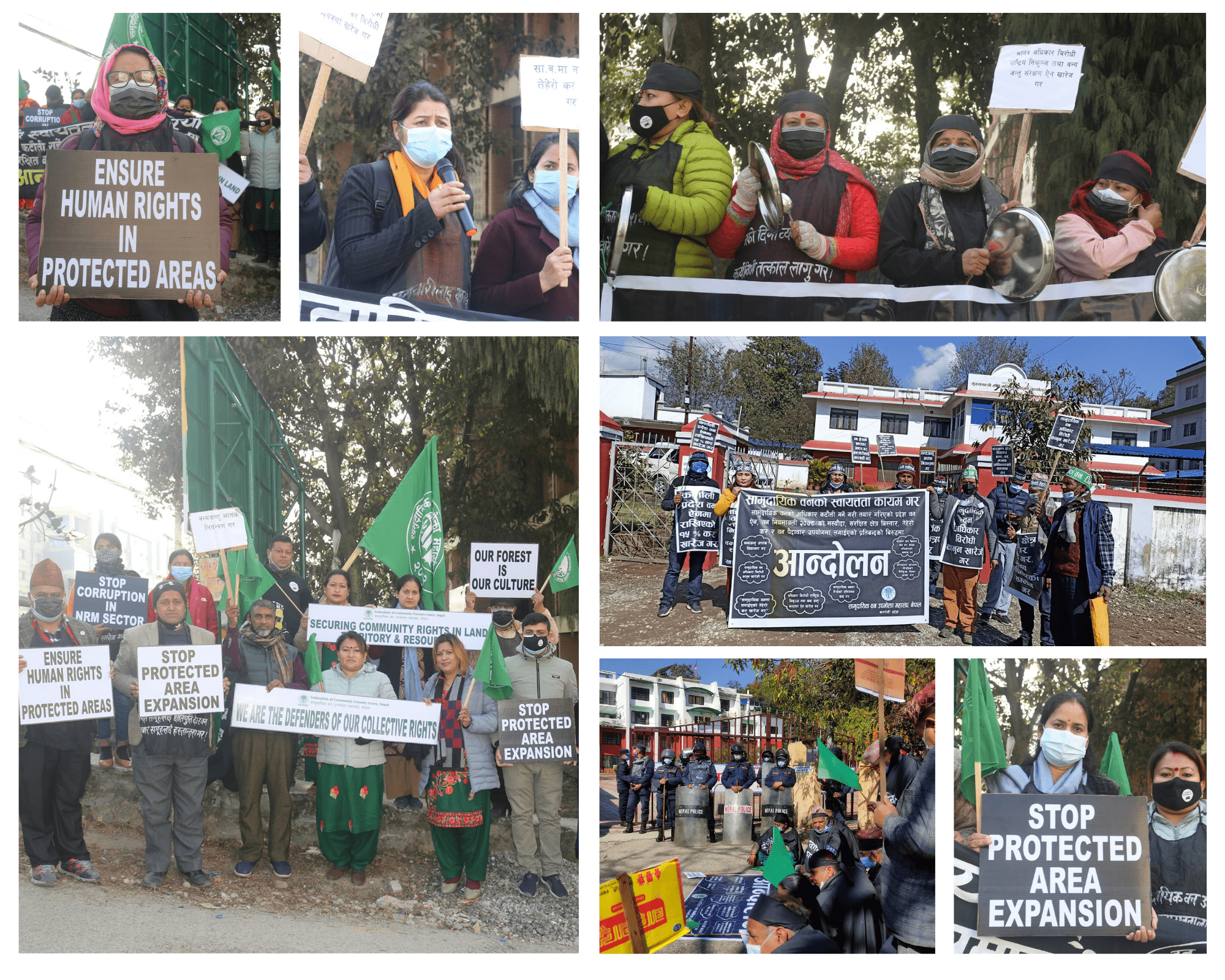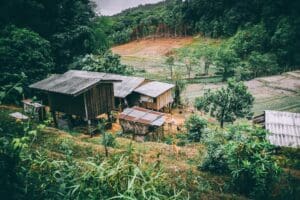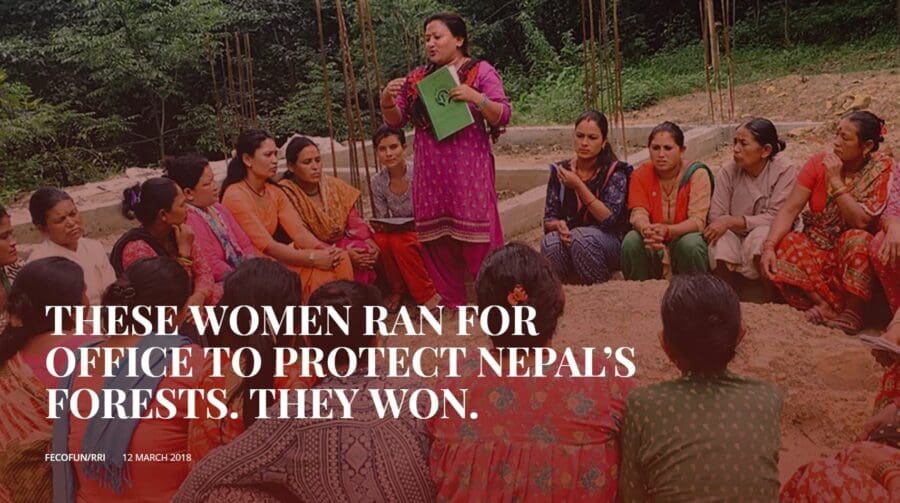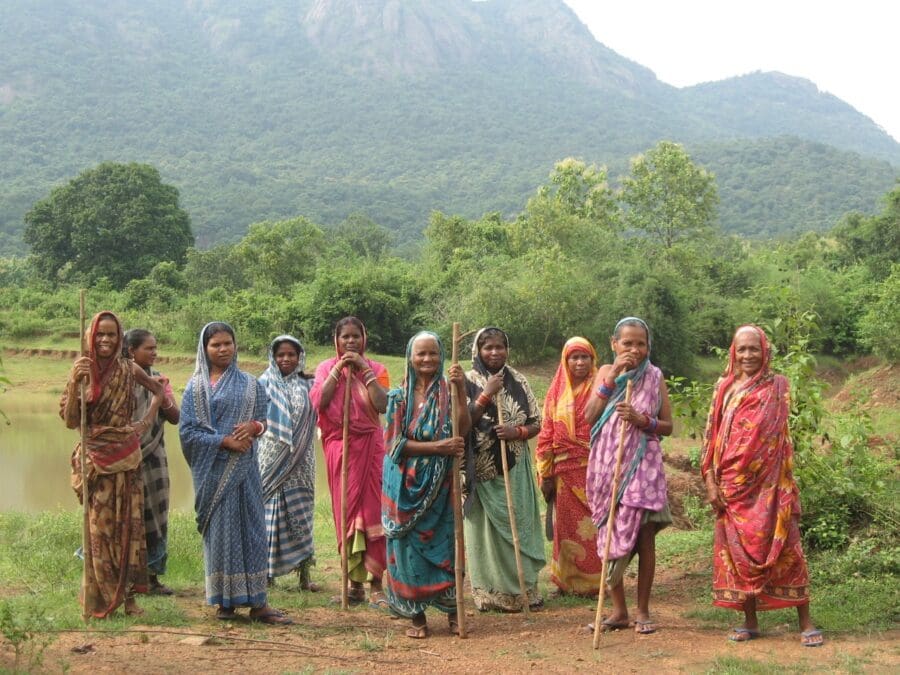Below is a summary of the campaign’s demands:
1. Article 18 (1) of Nepal’s Forest Act 2076 allows community forest user groups (CFUGs) to freely determine the price and sale of their forest products. However, Rule 23 of the new draft Forest Regulation 2078 requires that the groups provide 50% of their timber to the District Forest Production Supply. We request that this provision be repealed as it is in direct conflict with the constitution.
2. Repeal all new institutional structures created through regulations on issues that were not envisaged under the Forest Act. Currently, there exist at least 15 such institutional structures (e.g., the District Forest Products Supply Committee). These institutions have been placed at the district level, which is not envisaged by the constitution and reduces the constitutional rights of district coordination committees. They also create added financial burdens on the federal and provincial governments and curtail the provincial governments’ constitutional rights.
3. Sections 18 and 34 of Forest Act 2076 allow CFUGs to operate forest enterprises and tourism programs as specified in the Community Forest Operational Plan. However, the new regulations only allow forest enterprises to operate if the communities prepare a separate business plan for the local forest office to approve. We request this provision be repealed as it increases administrative burden on communities and also creates a jurisdictional dispute between the Industrial Office and the Forest Office.
4. For distributing timber outside the community forest, the Forest Act allows stamping of the timber by the CFUGs officially registered by the Forest Office. However, the draft regulation (Rule 50) requires that stamping of the timber be only done by the Forest Office, ignoring the authority granted to the CFUGs. We request to repeal this provision as the double stamping creates unnecessary administrative burden on the communities.
5. Repeal the following burdensome and impractical provisions introduced by the draft Forest Regulations: 1) Requiring a permit from the Forest Office each time when collecting forest products to distribute internally to households within the CFUGs; 2) requiring CFUGs to obtain consent from the Provincial Ministry, Forest Directory and District Disaster Management Committee for collection of fallen timber; and 3) requiring CFUGs to revise their community forest operational plans each time they collect timber from fallen trees.
6. Article 43 of Forest Act 2076 only allows collection of specific minerals such as gold, silver, copper, and iron and raw materials used for national priority development and approved by the Board for Foreign Investment. However, Rule 105 and 106 of the draft Forest Regulation 2078 allows extraction of all kinds of minerals from the forest area for all purposes. We request these provisions be immediately repealed.
7. Article 44 of Forest Act 2076 provides for management of environmental services as per the communities’ forest management operational plan. However, Rule 110 of the draft Forest Regulation allows only a Division Forest Officer to manage environmental services. This provision directly violates forest communities’ constitutional rights and must be repealed.
8. Repeal the following provincial forest regulations: 1) Requiring that CFUGs pay up to 25% tax on forest products required by government agencies or government-operated industries (violates Article 60 (1) of the Forest Act); 2) allowing expansion of protected areas in community forests; and 3) imposing restrictions on communities’ forest activities unless they have express permission from government authorities.
9. In contrary to the spirit of the constitution and Nepal’s commitment at the 1992 Convention on Biological Diversity, the federal and provincial governments have recently declared several new designated protected areas. These parks, reserves, buffer zones, environment protection areas and forest protection areas are being created on lands managed by CFUGs. They are also leading to destruction of community forests that have been historically protected and sustainably harvested by local communities. We request that the government bring an immediate stop to these activities.
10. Finally, across the country, government officials continue to block community forest users’ collection, utilization and distribution of forest products under various pretexts. They are also hindering the renewal of community forest operational plans and exerting undue pressure on communities to cut down natural forest trees to comply with government and private interests. We request that the government put an immediate end to these activities and ensure that CFUGs are able to safely collect their forest products as per their community forest operational plans and fundamental legal rights.
We will continue to update this page with new developments in this campaign.
For questions about the campaign, please contact Bharati Pathak. To learn more about FECOFUN’s advocacy work in Nepal, visit their website.








